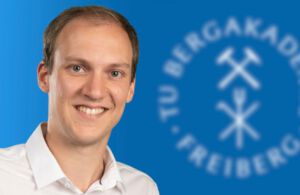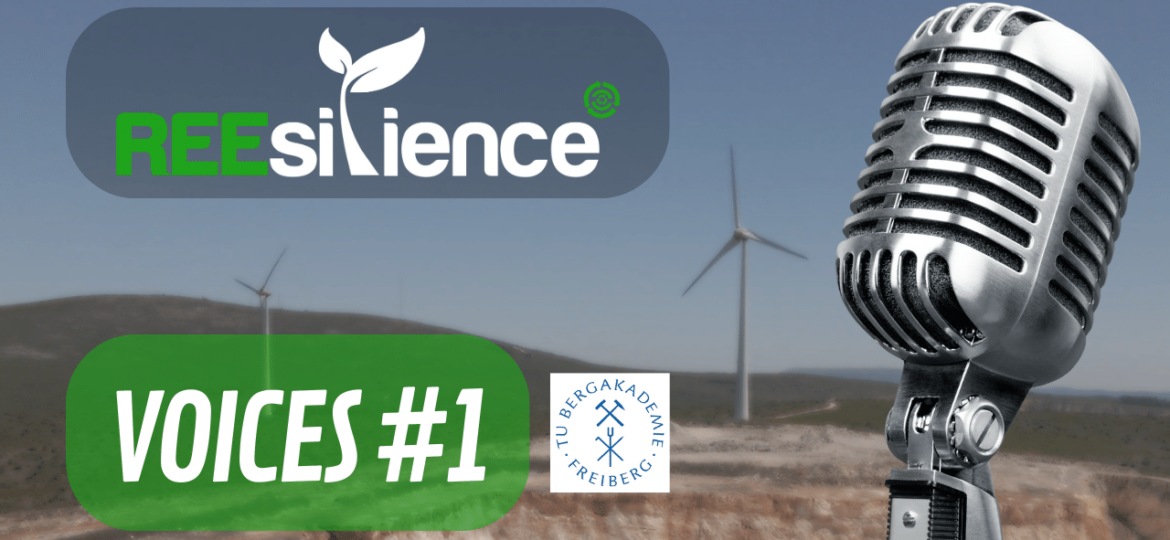REESILIENCE VOICES #1: TU Bergakademie Freiberg - Exploring Sustainable Supply Chains for Rare Earth Elements
In a recent interview with the REEsilience communication team, project partner Daniel Vogt from TU Bergakademie Freiberg discussed the challenges and opportunities associated with mining, processing, and recycling rare earth elements in Europe and shared his insights on the following questions:
Question 1: What challenges and opportunities are associated with mining, processing, and recycling rare earths in Europe?
According to the mining facts, recycling is a promising alternative. One good point of recycling is that radioactive materials like uranium, found in rare earth mine sites, are not present in the recycling goods. Another advantage is that the concentrations of elements like neodymium in recycling goods are high, making it a better raw material than mining ores. However, mining makes us less dependent on other countries, so we should explore both options.
The potential of recycling is enormous, and accidents due to hazardous or toxic waste streams from mine sites can be avoided. However, in the recycling route, there are process steps that produce a lot of greenhouse gases such as CO2 or CF4 (global warming impact >1000 x CO2), so it’s crucial to research ways to decrease emissions.
Question 2: How do you support the approach for resilient and more sustainable critical raw materials supply chains in Europe through the project REEsilience?
We are currently working on the last step of the rare earth production process, which is the reduction of rare earths through molten-salt electrowinning. This process is quite dirty and is mainly done in third-party countries like China. Our goal is to make each process step more understandable, increase automation, and make the process cleaner. One of the main things we want to do is control the emissions of greenhouse gases.
Additionally, we want to test whether we can directly implement rare earth streams from recycling plants into the process after the primary stage. These streams may contain other impurities, as we know them from mining ores, so we want to see if we can effectively treat them. This is our approach, and we’re excited about it.
Question 3: What does the future look like for raw materials in Europe?
I believe Europe has focused very much on this topic in recent years. Mine sites in Europe are relatively scarce, and the EU provided action plans for raw materials to avoid supply bottlenecks. Collaborations like REEsilience bring experienced partners from each supply chain step together. We, as a network, have the power to work out the best strategies for a future supply of raw materials and to act as a multiplier.
I think the supply of raw materials will be an increasingly challenging topic in the upcoming years. Nevertheless, I look positively into the future since a lot of research is going on in the field of recycling and the production of raw materials. I believe that we will always find ways to provide materials that we need or to find ways to substitute them.
About TU Bergakademie Freiberg: The TUB is a public university of technology with about 4,300 students in Freiberg, Saxony, Germany. The 2021 QS World University Rankings by subject rated TU Bergakademie Freiberg No. 17 for Mineral and Mining worldwide and No. 3 in Europe.
Role in the project: TU Bergakademie Freiberg will demonstrate the production of high-quality RE metals/alloys using primary, secondary and blended raw materials. Optimisation of the cell design during molten salt electrolysis of RE elements such as Neodymium will be investigated in order to minimise the greenhouse gas emissions and energy requirements of the process. The Institute of Non-Ferrous Metallurgy and Purest Materials (INEMET) will lead the research and contributes fresh RE feedstocks among the consortium for the production of new permanent magnet.

Dipl.-Ing. Daniel Vogt
Research Assistent at TU Bergakademie Freiberg and REEsilience Project Partner
